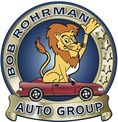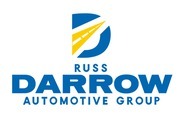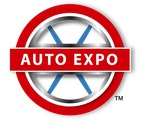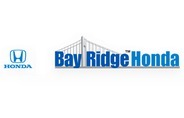Best Car Dealerships
It’s often easier to find a car you like than a dealer you trust. Before you buy a vehicle, check out this guide to research and find the best car dealership for you. We compared auto dealers by locations, inventories, financing options and servicing departments.
- Our recommendations are based on what reviewers say.
- 4,337,775 reviews on ConsumerAffairs are verified.
- We require contact information to ensure our reviewers are real.
- We use intelligent software that helps us maintain the integrity of reviews.
- Our moderators read all reviews to verify quality and helpfulness.
Compare Reviews for Top Car Dealers | ||||||
|---|---|---|---|---|---|---|
Compare
| Kia dealership in Fort Pierce, Florida. Sells new and used Kia vehicles. Limited lifetime warranty on new Kias. Financing available for all credit types. Online financing preapproval. College grad and Uber driver incentives. | |||||
Located in West Islip, New York, Atlantic Auto Mall offers pre-owned vehicles from multiple makes and models. Interested consumers can check out their full inventory and apply for financing online. |  | Chat with a ConsumerAffairs decision guide Live agent | ||||
Compare
| DriveTime’s corporate office is located in Phoenix, Arizona with 143 dealerships nationwide. With over 500,000 vehicles sold and over 11,000 vehicles available, it helps consumers with credit issues find a reliable used vehicle. |  | Call Center Open (888) 418-1212 | |||
Pars Car Sales services the Atlanta area with pre-owned vehicles. It welcomes consumers who have troubled or no credit and will work with them to find a financing option that will work for their situation. |  | Chat with a ConsumerAffairs decision guide Live agent | ||||
LeaseTrader.com provides consumers with third-party information to help them find deals, dealers and vehicles. Consumers can also list a vehicle on Leasetrader.com by creating an online account. |  | Chat with a ConsumerAffairs decision guide Live agent | ||||
Founded in 1989 and headquartered in Carmel, Illinois, J.D. Byrider has been selling used cars for over 25 years. Today, its 167 dealerships across 34 states have sold over 1 million vehicles. |  | Chat with a ConsumerAffairs decision guide Live agent | ||||
Family-owned dealer with new and used vehicles. Class A to Class C motorhomes, pop-tops, sprinters, travel trailers, toy haulers and fifth wheels. Costs range from $20,000 to $450,000. Parts and maintenance services available. |  | Chat with a ConsumerAffairs decision guide Live agent | ||||
Sunrise Toyota has been servicing Oakdale, New York and its surrounding areas for over 30 years. It has a wide range of new and pre-owned Toyotas, as well as financing and a full-service maintenance facility. |  | Chat with a ConsumerAffairs decision guide Live agent | ||||
Located in Union, New Jersey, Planet Honda boasts one of the ten largest Honda dealerships in the nation. Along with new and pre-owned Hondas, it provides customers with financing and a full-service body and maintenance shop. |  | Chat with a ConsumerAffairs decision guide Live agent | ||||
Leading source of information about vehicle history, including accidents, title information, number of owners and service records. Search for used cars by make, model, body type and price range. Free Vehicle History Reports. | Chat with a ConsumerAffairs decision guide Live agent | |||||
Car buyer’s guide
Although a large purchase, buying a new car should start with two simple questions: What are you looking for and what can you afford? Then, do your research — starting with our car buying tips.
Study the dealer inventory
Are you looking for a new or used car? A truck? Or are you thinking about a crossover? Vehicle inventory is the main reason consumers choose a particular dealership when looking to purchase a vehicle, so pay attention to what kind of stock a dealership has for its customers
- New vehicles: Most dealerships have an inventory of hundreds of new vehicle models to choose. Dealerships are the best option for consumers looking for variety, both in model and vehicle features.
- Used vehicles: Unless the dealership specifically sells used vehicles, most new vehicle dealerships sell pre-owned and certified pre-owned vehicles in addition to their new-car stock. Certified pre-owned vehicles are vehicles that have gone through the manufacturer’s testing to ensure they still meet original standards.
- Online inventory: Almost all dealership websites include an online list of their stock. Inventory lists are typically categorized into new and used sections and have multiple filters that can be applied; such as price range, make, model and features.
Dealer financing
Most of us will need some form of financing when purchasing a vehicle, which is not an issue with most auto dealerships. Car lots generally have on-site financing departments available with multiple options from which to choose. Even if you have a better financing option elsewhere, dealerships can usually work with off-site financing to make a deal. Used car dealerships are more likely to offer financing to buyers with poor credit.
- Pre-approval: Interested buyers can visit a dealership’s website and fill out an online application to get pre-approved for a loan. This is a quick way to get a quote for consumers who are comparing the dealership’s financing options with their bank or other financial institutions.
- Financing options: Auto dealerships offer multiple financing options to try to stay competitive with banks and other financial institutions. Interested buyers can check online for available financing options or call the number provided for the dealership's finance department. It is a good idea to compare a dealership’s interest rates with those of a bank or other institution.
- Financing specials: Many dealerships offer financing specials, incentives or rebates on their website. Interested buyers should ask about competitive interest rates, cash-back rebates, loyalty programs and bonus cash programs.
- Read the fine print: It’s important to remember that dealers may want to drag out the life of the loan as long as possible, making you pay far more in the end. Another thing to remember is that dealerships are not required to tell you your best loan rate and can pad the APR if they like, so make sure to discuss your auto loan options with your bank.
Dealership service centers
When the time comes to get their car serviced or repaired, vehicle owners usually have two choices: A local repair shop or an auto dealership. Most large dealerships have an on-site service center for regular maintenance and repair needs. Some dealerships even have a collision center that does body work on vehicles that involved in an accident.
- Manufacturer qualified mechanics: Auto dealerships employ mechanics that have received specialized manufacturer training for working on the make of vehicle sold at the dealership. Manufacturer training is also offered to the service department’s support staff, including service managers and advisors.
- Service relationship: Consumers who get their vehicles regularly serviced with their dealership can build a relationship with the service department, allowing them to better track a vehicle's service history. People can get specific service time frames and accurate diagnostic information from a dealership’s service center.
- Warranties: Another advantage of an on-site dealership service center is the fact that they honor manufacturer and extended warranty coverage free of charge, as opposed to a local repair shop who could charge a deductible.
- Shop around: Dealer service centers are usually spotless, filled with master mechanics and have state of the art equipment. This all equates to a high expense for the dealership that is then passed down to you, the consumer. Sometimes you can get the same service at smaller locations for a lower price, so if you are forced to pay for repairs out-of-pocket, make sure to get quotes for the same repairs elsewhere.
Dealership online features
An auto dealership’s website is great to look over before visiting the dealership in person. Interested buyers can find information on inventory, pricing, vehicle features, financing options, daily specials and more. Vehicle owners can even schedule service appointments or order parts online.
- Schedule service: Vehicle owners can visit a dealership’s website and schedule a time for their vehicle's servicing. The online scheduling process typically involves filling out the vehicle's make, model and year; the type of service needed; and, picking an available time slot on the dealership’s calendar.
- Loan applications: Many dealerships offer interested buyers the opportunity to apply for a loan online. They can fill out an application that includes their contact information, vehicle request information and social security number. Consumers should make sure the website is secured by looking for an encryption lock icon.
- Online shopping: Auto dealerships typically have their new and used inventory online. Customers can search by make, model, body style, year and price range then look at multiple photos of each vehicle along with a list of features for each one. Interested buyers can chat live with a representative from the dealership and ask them any questions that come up while they are browsing.
The upsell
Most people expect to be taken advantage of at an auto dealership, but this does not need to happen. If you understand which options dealers are offering on top of the vehicle, you can decide whether they are trying to upsell, cross-sell, or give you a handy addition to your purchase.
Upsell
An upsell is when a salesperson tries to sell you a “better version” of what you’d like to purchase. This could be the newest model or a different, more expensive model.
- Upgraded model: If you enter a dealership looking for a specific car but the dealer continues to push you into purchasing something more expensive but maybe a little faster or have a little more leather, the dealer is trying to get you to buy an upgraded model that isn't necessary. Remember, if you don’t want a “GT” or “Limited Edition” version of what you’re looking for, you don’t need to buy it.
- Add-ons: Other than all the standard safety features found on every car sold in the US, most cars today have the essentials you need — like AC and a Radio — so anything beyond that will be an upsell. If you would like that upgraded sound system, go ahead and ask the dealer for more information; otherwise, you can go without the extra cost.
Cross-sell
A cross-sell is when a salesperson is trying to sell something that adds on to your current purchase, like a nozzle for a new garden hose.
- Undercoating: Unless you live near the ocean or in an area where the ground is salted during winter, undercoating is clearly a cross-sell. Basically, this is a treatment to protect your car from rust that really only happens in those two locations, so do your research before signing off on the undercoat.
- Tire and wheel protection: As it states, this is a limited warranty for your tires and wheels. Before looking into this, see if your existing car warranty covers wheels and if the tires themselves come with a maintenance plan.
- Key protection: This is designed to cover the cost of a replacement key if yours is lost or stolen. Sometimes this can come in handy as some keys can be pretty expensive, but double-check the price of a key replacement versus purchasing a new key as the plan could be a waste of money.
- Dent protection: This covers the cost of fixing dents that don’t need comprehensive bodywork or new paint. It is a handy feature if you drive in an area with loose asphalt, gravel, or older roads.
Additions
In our opinion, the additions listed below may not be necessary but should be researched in your auto buying experience.
- Guaranteed Asset Protection (GAP): This is an attractive protection plan for anyone interested. Basically, GAP insurance will cover what’s left on your auto loan if you are involved in an accident and you owe more than what your car is worth.
- Maintenance Plans (pre-paid): Some dealerships offer maintenance plans for an extra fee. These plans can be great for some, but take a look at what they offer versus how much general maintenance will be as well as what you already have covered in the warranty.
- Credit insurance: Credit insurance pays off the remainder of your loan under certain circumstances, such as death or unemployment. This insurance is voluntary but may be worth it after investigating the coverage and the cost.
Car dealers FAQ
Can you sue a dealership?
Yes, you can sue a car dealership. Common reasons to sue include:
- Overcharging
- Not disclosing elements of the vehicle’s history
- Faulty warranty service or breach of contract
- Adding accessories and features to your bill without your consent
If you’re interested in filing a lawsuit against a car dealership, first find a lawyer who’s willing to take your case.
How long do dealers keep used cars on the lot?
Most dealerships keep used cars on the lot for at least 90 days before sending them off to auction, but some dealers may hold out as long as 150 days.
Waiting to purchase a car might earn you a lower price, but the longer you leave the car on the lot, the higher the risk of it disappearing.
What happens to cars that don't get sold?
Cars that don’t sell on dealership lots either get sold at auction, put to use as loaners or shipped to other dealerships where they’re more in demand.
What is the best month to buy a car?
The best month to buy a car is December because dealerships want to buff up their sales numbers for the year. If you can’t wait for the end of the year to buy a new car, shopping at the following times can help you get the best deal:
- Late in the month
- Early in the week
- Holiday weekends
- At the end of the model year
- Once a new design comes out
- When the manufacturer discontinues the model
Why do car rental companies sell their cars?
Car rental companies sell their vehicles to keep their fleet updated and make room for newer models. A former rental car has likely had regular maintenance and few modifications, but the wear and tear might be excessive for its age.
Compare Reviews for Top Car Dealers | ||||||
|---|---|---|---|---|---|---|
Lets you shop new and used cars, trucks, classic and exotic automobiles and more. Offers parts, tools and other automotive supplies. Users can make bids or offers and buy online. Vehicle purchase protection guards against fraud. |  | Chat with a ConsumerAffairs decision guide Live agent | ||||
Located in Fort Lauderdale, Florida, AutoNation is a Fortune 500 company and America’s leading provider of new and used vehicles. It has over 290 vehicle franchises across 15 states and has serviced over 10,000,000 customers. | Chat with a ConsumerAffairs decision guide Live agent | |||||
Performs 125-point inspections. Buy with no haggling or pressure. Seven-day trial period with the option to return a vehicle for a full refund. Covers major systems for 90 days or 4,000 miles. No fee for home delivery. | Chat with a ConsumerAffairs decision guide Live agent | |||||
Headquartered in Edina, Minnesota, CarHop has multiple locations across the United States selling used vehicles of various makes and models. Consumers can check online for financing qualifications. |  | Chat with a ConsumerAffairs decision guide Live agent | ||||
David Stanley Dodge services Oklahoma City and surrounding areas with new and used Jeep, Chrysler and Dodge vehicles. Consumers can visit their website for specials and financing options. |  | Chat with a ConsumerAffairs decision guide Live agent | ||||
America’s CAR-MART was established in 1981 and is headquartered in Bentonville, Arkansas. It has over 143 locations across the United States that offer used vehicles at affordable prices. |  | Chat with a ConsumerAffairs decision guide Live agent | ||||
Lets you search a large selection of new, used and certified cars from dealers and private sellers. Includes photos, videos and reviews. Offers financing, insurance and warranty help. Used by over 14 million shoppers each month. | Chat with a ConsumerAffairs decision guide Live agent | |||||
Located in Brooklyn, New York, Plaza Auto Mall has an inventory of new and used cars from multiple brands, including Hyundai, Honda, Acura, Toyota and Kia. Customers can view and apply for financing options online. |  | Chat with a ConsumerAffairs decision guide Live agent | ||||
Florida-based and online used car dealership. Selection of 5,000 vehicles. Economy cars from $5,000, and luxury cars from $100,000. Financing and warranty options available. Free five-day, 500-mile exchange policy. |  | Chat with a ConsumerAffairs decision guide Live agent | ||||
Bob Rohrman Auto Group offers new and used vehicles from multiple makes and models across Indiana and Illinois. Interested consumers can check online for specials and financing options. |  | Chat with a ConsumerAffairs decision guide Live agent | ||||
Sansone Auto is located in Avenel, New Jersey and offers an inventory of new and used vehicles from multiple brands including Toyota, Nissan, Hyundai, Mazda and Jeep. Interested buyers can apply for financing on their website. |  | Chat with a ConsumerAffairs decision guide Live agent | ||||
Compare
| Major World offers new and used Dodge, Chrysler and Jeep models across multiple dealerships in the New York City surrounding area. It provides a full range of services including financing and vehicle servicing. |  | ||||
Kia of St. Cloud provides new and used Kia’s to Waite Park, Elk River and Brainerd, Minnesota. It offers consumers with financing options regardless of credit and a full-service shop for any maintenance needs. |  | Chat with a ConsumerAffairs decision guide Live agent | ||||
Honda of Ocala provides the city of Ocala, Florida and surrounding areas with new and used Honda cars, trucks and SUVs. Customers can browse inventory, schedule maintenance and view financing options online or in the dealership. | Chat with a ConsumerAffairs decision guide Live agent | |||||
Russ Darrow Group was established in 1967 and is located in West Bend, Wisconsin. Today, it offers Chrysler cars, trucks and SUVs across 16 locations in Wisconsin. |  | Chat with a ConsumerAffairs decision guide Live agent | ||||
B&B Automotive has been helping people with challenging credit get a dealer-certified used vehicle for over 25 years. Located in Fairless Hills, Pennsylvania, it has over 250 vehicles in its inventory to choose from. |  | Chat with a ConsumerAffairs decision guide Live agent | ||||
Auto Expo was established in 1999 and provides customers across New York with pre-owned luxury vehicles. Customers can browse its extensive inventory online before traveling to the dealership. |  | Chat with a ConsumerAffairs decision guide Live agent | ||||
Paul Blanco services California with a large variety of vehicles that include almost all major makes and models. It works with over 120 specialized banks to get customers the financing they need. | Chat with a ConsumerAffairs decision guide Live agent | |||||
Quirk Ford services the greater Boston area with new and used Ford vehicles. Customers can utilize their service department for parts and routine maintenance as well as multiple financing options. |  | Chat with a ConsumerAffairs decision guide Live agent | ||||
Rick Case Honda is located in Davie, Florida and provides surrounding areas with new and pre-owned Honda vehicles. Their website is an easy way to view inventory, schedule service, get a quote or find daily specials. |  | Chat with a ConsumerAffairs decision guide Live agent | ||||
Bay Ridge Honda provides Brooklyn, New York and surrounding areas with an inventory of new and used Honda cars, trucks and SUVs. Interested buyers can check out financing options, specials and a full inventory list online. |  | Chat with a ConsumerAffairs decision guide Live agent | ||||
Located in Bonham, Texas, Bonham Chrysler services the McKinney, Sherman and Paris, Texas areas with new and used Chrysler cars, trucks and SUVs. It offers in-house financing, parts and service and multiple special offers. |  | Chat with a ConsumerAffairs decision guide Live agent | ||||
Yonkers Auto Mall is a pre-owned car dealer and full-service dealership servicing the Westchester, Bronx and White Plains, New York area. Consumers can utilize their online finance calculator to value a trade-in vehicle online. |  | Chat with a ConsumerAffairs decision guide Live agent | ||||
Quirk Chevrolet services the greater Boston area with new and used Chevy vehicles. Customers can utilize their service department for parts and routine maintenance as well as multiple financing options. |  | Chat with a ConsumerAffairs decision guide Live agent | ||||
Drivehere.com offers customers an inventory of pre-owned vehicles and affordable payment plans. It specializes in providing consumers who have poor credit the opportunity to receive a car loan. |  | Chat with a ConsumerAffairs decision guide Live agent | ||||
Richard Lucas Chevrolet has been servicing Woodbridge, New Jersey and surrounding areas for over 90 years. They provide a wide range of Chevy cars, trucks and SUVs, as well as financing options and full-service shops. |  | Chat with a ConsumerAffairs decision guide Live agent | ||||
Parker Toyota got its start in 1983 in Coeur d'Alene, Idaho. Since then, they have been offering customers with new and pre-owned Toyotas, financing and full-service options. |  | Chat with a ConsumerAffairs decision guide Live agent | ||||
Interstate Auto Auction has held over 1,000 public car auctions online or in Salem, New Hampshire since 2000. It has sold over 60,000 cars worldwide, offering significantly lower, wholesale prices for major makes and models. | Chat with a ConsumerAffairs decision guide Live agent | |||||
Statewide Auto Sales is headquartered in Sun Valley, California and has been providing customers with luxury vehicles for over 37 years. Along with competitive pricing they offer financing and warranties for all vehicles. | Chat with a ConsumerAffairs decision guide Live agent | |||||
Online car buying platform. New, used and certified pre-owned vehicles. Finds low prices and discounts from local dealers. 39 brands and nine body styles. Quick quotes with no haggling. Pre-approval available. |  | Chat with a ConsumerAffairs decision guide Live agent | ||||
DCN Hyundai (formerly Brad Benson Hyundai) sells new and pre-owned vehicles to car buyers in Monmouth Junction, NJ. Ask about their special financing offers for new college graduates and members of the military. Out Of Business |  | Chat with a ConsumerAffairs decision guide Live agent | ||||
Information in this guide is general in nature and is intended for informational purposes only; it is not legal, health, investment or tax advice. ConsumerAffairs.com makes no representation as to the accuracy of the information provided and assumes no liability for any damages or loss arising from its use.
Want your company to be on this guide?
Yes, continueYou’re signed up
We’ll start sending you the news you need delivered straight to you. We value your privacy. Unsubscribe easily.